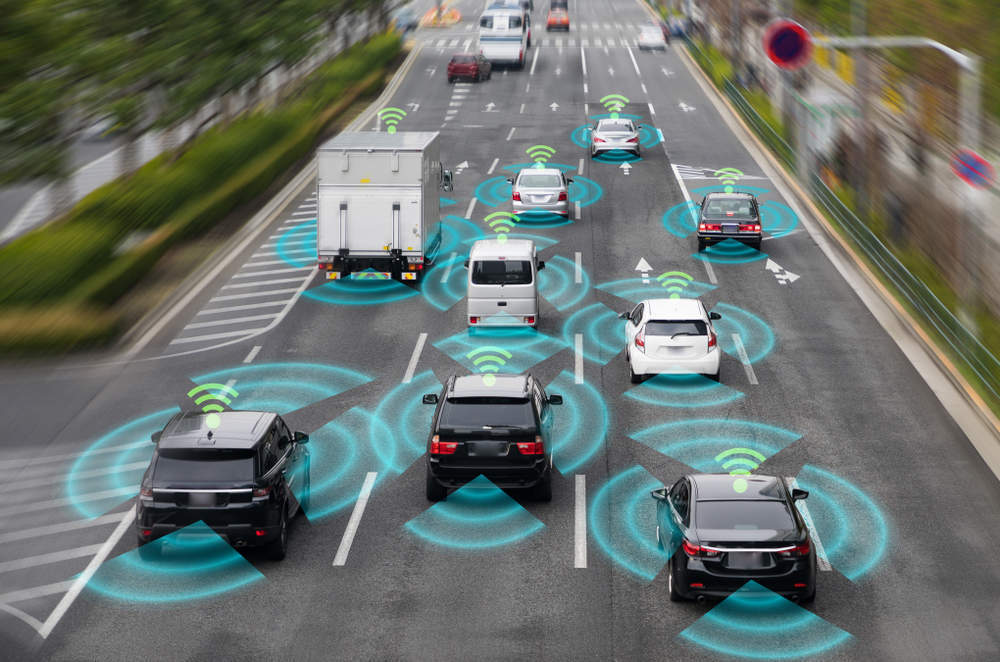GlobalData’s unique theme-based analysis is identifying the semiconductor companies best placed to succeed in the future based on their capabilities in the nascent market in self-driving cars.
Self-driving cars has been named by GlobalData as one of the top ten themes that will impact the semiconductor sector over the next two years.
The other nine are: high-performance computing, artificial intelligence (AI), data centres, ambient commerce, the industrial internet, gaming, 5G, M&A and geopolitics.
With so many disruptive technologies impacting so many industries, companies are struggling to identify the technology partners that can help them transform their business in a digitised world.
To help them, GlobalData’s Thematic Team has developed a “thematic engine” which is designed to identify tomorrow’s tech leaders rather than today’s tech incumbents, based on their competitive position in the most important themes impacting their industry. The GlobalData thematic engine spans 15 key technology sectors – from semiconductors to consumer electronics to enterprise software – and covers over 60 themes.
The semiconductor companies given the highest thematic scoring for self-driving cars are: Intel, Alphabet, STMicroelectronics, Texas Instruments, Baidu, Analog Devices, ROHM, NVIDIA, Aixtron, Renesas, NXP, Infineon, Tesla, Melexis, ON Semiconductor, Skyworks and Silicon Labs.
How well do you really know your competitors?
Access the most comprehensive Company Profiles on the market, powered by GlobalData. Save hours of research. Gain competitive edge.

Thank you!
Your download email will arrive shortly
Not ready to buy yet? Download a free sample
We are confident about the unique quality of our Company Profiles. However, we want you to make the most beneficial decision for your business, so we offer a free sample that you can download by submitting the below form
By GlobalDataWhat do self-driving cars mean for the semiconductor sector?
Each new car carries an average of nearly $500 worth of chips. This compares to a chip content of just $70 for the average smartphone. These chips come in all shapes and sizes – radio frequency (RF) and baseband chips, sensors, microcontrollers and powerful CPUs to process vision interpretation data.
The intelligence that is built into cars is growing dramatically. Driver assistance features like automatic parking are already mainstream and developments in autonomous technology are happening at a fast pace.
Over the next couple of years, demand for chips from the auto sector will rise significantly. Google’s Waymo, the leading developer of the ‘robot driver’ is based on hardware from Intel/Mobileye, while Nvidia, Baidu and start-up Aurora are gaining considerable traction, with Nvidia leading the way. Apple, with its Titan electric car project is very much the dark horse. Tesla is developing its own AI chip and China is investing in scores of AI chip start-ups focused on supplying and developing this sector.
The world’s most important semiconductor companies
The full universe of 57 semiconductor companies covered by GlobalData’s Semiconductor Sector Scorecard are:
- Aixtron
- Alibaba
- Alphabet
- Amazon
- AMD
- AMS
- Analog Devices
- Apple
- ASML Holding
- Baidu
- Barefoot Networks
- Broadcom
- Cambricon
- Cirrus Logic
- Cypress
- Dialog
- Diodes
- Graphcore
- Himax
- IBM
- Infineon
- Intel
- Marvell
- Maxim
- MediaTek
- Melexis
- Mellanox
- Microchip
- Micron
- Microsoft
- Monolithic Power Systems
- Nanya Tech
- Nvidia
- NXP
- On Semiconductor
- Qorvo
- Qualcomm
- Realtek Semiconductor
- Renesas
- Rohm
- Samsung Electronics
- Silicon Labs
- Silicon Motion
- SK Hynix
- Skyworks
- SMIC
- Softbank
- STMicroelectronics
- Teradyne
- Tesla
- Texas Instruments
- Tokyo Electron
- TSMC
- UMC
- Vanguard
- Xilinx
- Zeno







Related Company Profiles
Aixtron SE
Analog Devices Inc
Google LLC
Alphabet Inc
Intel Corp